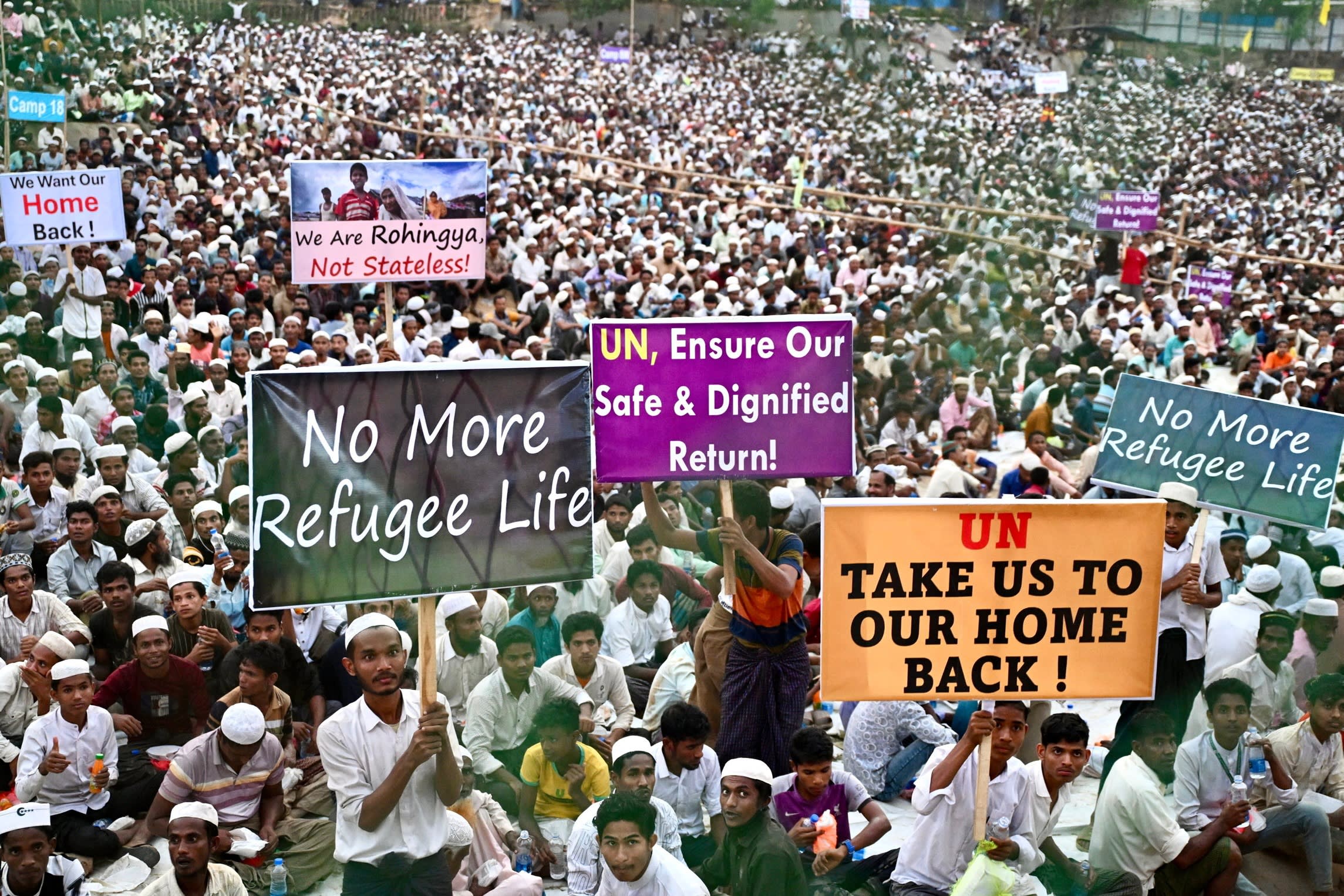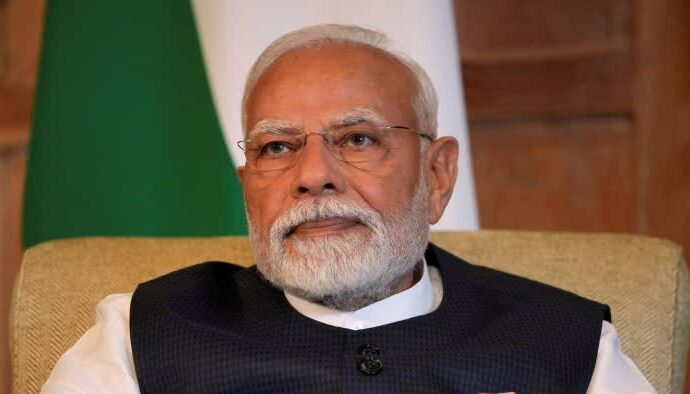Bangladesh’s Muhammad Yunus has vowed to stay in power until as late as mid-2026, despite growing political turmoil and calls from opponents and parts of the military to hold a vote and hand reins to an elected government sooner.
The Nobel laureate, who heads an interim government named after last year’s overthrow of Sheikh Hasina in a student-led revolt, also brushed aside concerns voiced by rights groups over a recent ban on her party’s political activities and arrests of people linked to the old regime.
“We promise that this election will be held from the beginning of December of this year to June of next year,” Yunus said in Dhaka, ahead of a visit to the UK from June 9. “Within this period, it will be held — that’s it.”
The 84-year-old, who took power as caretaker leader after Hasina’s ousting in August, has said he needs more time to secure reforms of Bangladesh’s judiciary, bureaucracy and other institutions captured by Hasina’s Awami League party, and to account for extrajudicial killings, disappearances and other crimes during her 15-year rule.
Last month Yunus’s interim government formally banned all activities of the Awami League, accusing the party of “co-ordinated violent activity” during the 2024 protests that led to more than 1,400 deaths.
“We don’t want to create another fascist regime coming out of the same rules, the same systems and so on,” Yunus told the Financial Times. “We want to make sure all this reform agenda is put in practice.”
However, 10 months after Bangladesh’s biggest upheaval in decades, Yunus is struggling to keep the upper hand in an increasingly fractured political landscape, while himself facing accusations of clinging to power. Mohammad Arafat, a leader of the Awami League, said in response to Yunus’s charge that “it’s very convenient to label opposition as ‘fascist’ to justify suppressing them”.
People close to the interim government privately say Yunus feels undermined by what he sees as an informal alliance between the Bangladesh Nationalist party, historically one of the two dominant parties in Bangladesh and widely expected to win the next election, and the army, both of which accuse him of stalling in setting an election date.

The BNP, which initially backed Yunus, has since withdrawn its support and called for the vote to be held by December.
“We don’t see any reason why an unelected government should continue,” Amir Khasru Mahmud Chowdhury, a senior BNP politician, told the Financial Times. “We are already into 10 months — a child could have been born by now.”
“Why not August, why not September?” he said. “Why December?”
The National Citizens party, a new grouping formed by student leaders of last year’s uprising, is the only political faction that agrees with Yunus that reforms should take priority.
Senior figures in the military have been unnerved by the push for legal accountability for crimes of the old regime, and by the idea of a “humanitarian corridor” between Bangladesh and conflict-ridden Rakhine state in neighbouring Myanmar, floated by UN chief António Guterres during a March visit. Bangladesh already hosts the world’s largest population of Rohingyas — more than 1mn people — and they have few near-term prospects of returning home because of Myanmar’s civil conflict.
Bangladeshi media last month, citing anonymous sources, reported that army chief General Waker-Uz-Zaman told officers that the election should be held by December. A military spokesman said that the closed door meeting “was for the consumption of an internal audience” and that “we do not comment on internal issues”.
While Yunus’s banning of Awami League activities was endorsed by student groups, it was criticised by Narendra Modi’s government in neighbouring India, which propped up Hasina as a key regional ally, and where she fled after being overthrown.
India’s foreign ministry called the freeze on the party’s activities a “concerning development”, spoke of the “curtailment of democratic freedoms and shrinking political space” and urged Dhaka to hold early, inclusive elections.
Rather than going through the courts to curtail Hasina’s party, the Yunus administration issued an executive order, based on a recent amendment to the country’s Anti-Terrorism Act. The change broadened the law’s scope to allow authorities to designate political parties as terrorist groups if they are deemed a threat to public or national security.
The interim government also amended the International Crimes (Tribunals) Act — meant to prosecute individuals for war crimes committed during the country’s 1971 independence struggle — to prosecute entire political parties and organisations for crimes against humanity.
Rights groups say the legal changes give the government sweeping powers to criminalise political opposition.
Human Rights Watch has described the amendment to the Anti-Terrorism Act as “draconian”, warning that the measures echo the same tactics used by the Awami League to suppress dissent.
“The spate of arrests of alleged Awami League supporters, often on politically motivated allegations of murder, is extremely concerning,” Meenakshi Ganguly, the group’s deputy director, told the FT.
“This replicates some of the abuses under the Awami League government and suggests that the system remains as abusive as ever, only the ones targeted have changed.”
Asked to address the criticism, Yunus said that it was “always good that human rights people raise their voice when they see something wrong”, and added: “If there is some violation, we need to try to correct it.”
